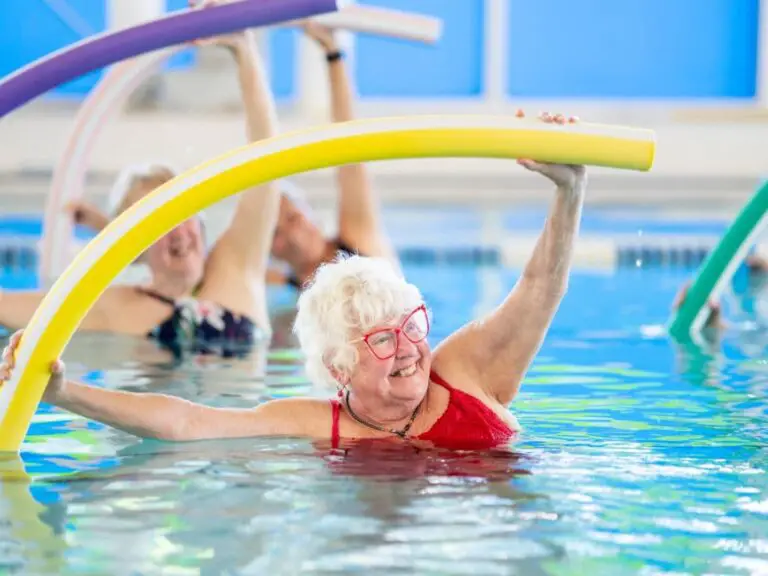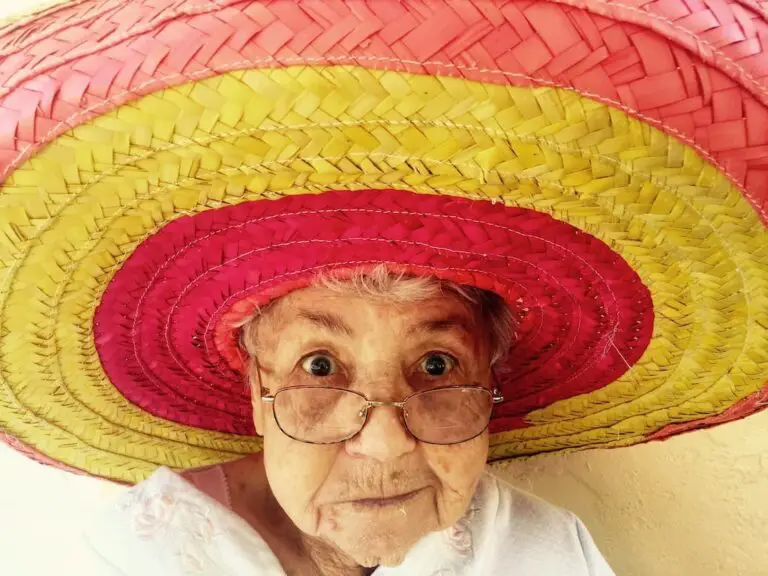Who Oversees the Dietary Needs of the Resident?
As people age, their dietary needs change. Thus, it is essential to ensure that residents in a nursing home get the nutrients necessary to maintain their health and wellness.
But who ensures the dietary needs of the resident?
The dietary needs of residents in a nursing home are overseen by a health and wellness director appointed at the nursing home. This director is responsible for creating menus and developing a diet plan that meets the specific needs of each resident. They must possess the required skill set, qualifications, and experience to ensure that the residents receive the necessary nutrients for their health and wellness.

In the rest of the blog, I am going to discuss how nursing homes meet the nutritional requirements of residents. Also, I will talk about the food and nutrition services in a nursing home. Let’s dive in!
Overseeing the Dietary Needs of a Resident
A health and wellness director or a clinically qualified nutrition professional is employed to oversee the dietary needs of a resident. The person is employed full-time, part-time, or on a contractual basis. Furthermore, the person is competent and has the required skill set to carry out the food and nutrition service functions.
The health and wellness director must possess one of the following qualifications
- A certified dietary manager
- Or a certified food service manager
- Or a similar certification degree for food service management and safety
- Has a higher degree in food service management or hospitality
- Has 2+ years of experience as a director of food and nutrition services
- Meets the state requirements for food service or dietary managers
A dietician or a nutritional professional is employed if a full-time director is not employed. The person must possess one of the following qualifications.
- Possesses a bachelor’s or a higher degree in a nutrition or dietetics program
- Has successfully completed 900 hours of dietetics practice
- Certified or licensed as a nutritional professional by the state
Regulatory Requirements and Guidelines to Meet the Nutritional Requirements of the Residents
The CMS (Centers for Medicare and Medicaid Services) instituted regulatory requirements and guidelines for nursing homes. These guidelines point out how nursing homes must provide residents with nutritious, well-balanced meals and snacks.
Nutrition and Menus
Health directly relates to nutrition. Many nursing home residents deal with health challenges. Hence taking care of their nutritional requirements is incredibly important.
A nursing home must provide proper nutrition specific to its residents’ health and dietary needs. The nutritional guidelines by the CMS require the following:
- the diets offered to the residents prevent weight loss or gain
- the food promotes quality of life and prevents malnutrition
- each resident must receive 3 full meals per day and snacks prior to bedtime
- the food must be cooked thoroughly
- the cooked food should be safe to eat, not too bland or spicy
- The food should be served at the optimum temperature.
Specific Medical Conditions
Aged patients with certain health conditions find it difficult to consume their nutritional needs. Some medical conditions cause decreased appetite and inability to consume food. The nursing home has to ensure that these patients receive special care.
How Do Nursing Homes Meet the Nutritional Requirements of the Residents
There are many strategies through which nursing homes ensure that the residents’ nutritional requirements are met. Let us take a look at the standard strategy.
1. Nutrition Assessment
Nutrition assessment is the complete review of a resident’s nutritional status. It includes –
- medical history
- lab tests
- physical examination
- dietary habits.
This assessment helps in determining the resident’s nutritional needs. It also helps to identify any health condition that may affect their diet.
2. Menu Planning
Nursing homes create menus designed to meet the dietary needs of residents. It is done based on nutritional evaluation for every individual. These menus are made to be balanced and diverse.
The menu focuses on whole foods and nutrient-dense ingredients. The menu also includes options for residents with special dietary needs. For example, those with diabetes and kidney and swallowing difficulties.
3. Trained Staff
Nursing homes must employ trained staff. These include registered dietitians or nutritionists to oversee the dietary needs of the residents. These professionals provide training and education to dietary staff.
They also ensure that the staff knows the latest guidelines and best practices. Moreover, they work closely with residents and their caretakers to understand their nutritional needs.
4. Food Preparation and Presentation
The food provided to the residents must be safe, nutritious, and appealing. Nursing homes use high-quality ingredients to prepare healthy food.
They use specific preparation techniques to make sure that the food meets the nutritional guidelines. Furthermore, they make the food visually appealing to increase residents’ appetite and satisfaction.
5. Monitoring
Nursing homes regularly monitor the nutritional status of their residents. This is done to ensure that they’re meeting their dietary needs.
The resident’s weight, food intake, and overall health are monitored. If a resident needs more nutrition, their diet plans are changed. These strategies help ensure that the residents receive their required amount of nutrition.
What Are the Challenges Faced By the Director of Food and Nutrition?
The director faces several challenges in meeting the dietary needs of the residents. The nutritional needs change with people aging. Thus, the director should be aware of these changes and should accommodate them.
Some common challenges faced by the director are
1. Decreased Appetite
As people age, their appetite decreases. This makes it difficult for people to obtain the required nutrients. A tailored diet plan is created for the resident to overcome this challenge. This diet plan includes foods with high nutrient density and low calories.
2. Difficulty in Chewing and Swallowing
With age, people have trouble chewing and swallowing food. This can lead to malnutrition if not taken care of. Eating food is simplified by pureeing or providing softer foods. Adequate hydration is ensured through soups and juices.
3. Changes in Taste
People grow less fond of food with age. This can result in malnutrition if not taken care of. The food can be made appealing in order to increase appeal at times.
4. Staffing Issues
The food service department may face staffing shortages. It can make it difficult to provide timely and efficient meal service. Thus, staff must be managed effectively to ensure a timely and adequate meal service.
5. Food Safety
As you know, food safety is a critical issue in nursing homes. This is because residents are at higher risk of illness. The food service department must ensure that all safety protocols are followed. This would minimize the risk of food safety-related issues.
6. Changing Regulations
State and federal protocols related to food service in nursing homes are subject to change. The health and wellness director must be up to date with the changes to ensure compliance.
What to Do if a Nursing Home Does Not Meet Nutritional Needs?
You could try to find the best nursing home for your elderly. But this would not guarantee that the nursing home is meeting the requirement for the nutritional needs of the residents.
Every state has guidelines established for nursing homes. Even with these guidelines, malnutrition continues to cause health issues and increased mortality rates.
Statistics show that up to 70% of all nursing home residents leave one-fourth or more of their food uneaten at meals. Moreover, up to 80% of nursing home residents need dietary supplements to receive their necessary nutrition. Failing to meet their nutritional needs, 25% of nursing home residents experience weight loss.
Your elderly loved one’s health may be at risk. If you observe that they’ve lost weight, are not eating enough food, or not getting enough nutrition. You can take the following steps in this situation.
- Inform the nursing home: Inform the director of food and nutrition services. They might be able to make changes and improve the quality of food.
- Talk to a healthcare provider: Consult with a healthcare provider. You can contact a doctor or a physician. They can assess the resident and create an appropriate diet plan.
- Raise a complaint: File a complaint with the State Department of Health. This might prompt an investigation and enforcement action.
- Consider legal action: If the resident’s health is at risk, legal action may be necessary. Contact an attorney with experience to explore your options.
It is essential to make sure that nursing homes meet the nutritional needs of their residents. If they do not, taking action can improve the situation and ensure the residents receive the care they deserve.
Who is responsible for the dietary needs of nursing home residents?
A major part of keeping us healthy as we age is making sure that we get the proper nutrition. This is where a health and wellness director comes in.
A health and wellness director is responsible for the dietary needs of nursing home residents. They work with dietitians to create menus that are nutritious and meet the specific needs of each resident. They also make sure that meals are prepared properly and served in a timely manner. In addition, they may also be responsible for providing education on nutrition to staff members and residents.
The job of a health and wellness director is important because it helps ensure that nursing home residents are getting the nutrients they need to stay healthy
What Are the Responsibilities of a Health and Wellness Director?
So what exactly does a health and wellness director do?
Here are some of the key responsibilities of a Health & Wellness Director:
- Monitor staff performance, conduct regular rounds and respond to complaints to ensure quality care.
- Plan and implement programs to promote physical activity, good nutrition, mental stimulation, social interaction, and other factors for wellbeing.
- Collaborate with resident councils/committees and make presentations on health & wellness topics.
- Educate staff on trends in senior healthcare.
- Stay up to date on regulations affecting senior living communities.
- Serve as a resource for families who have questions about care or need assistance navigating the healthcare system.
- Research new technologies or approaches to improve health & wellness programs.
- Coordinate services with the Executive Director and other department heads to ensure holistic care.
Why Is It Important to Have Someone Overseeing the Dietary Needs of Nursing Home Residents?
A registered dietitian or nutritionist is essential in providing tailored dietary plans for nursing home residents that meet their unique nutritional needs.
They can develop menus to accommodate special dietary requests, and provide education on healthy eating and portion control for both staff and residents.
Ensuring that nursing home residents receive the proper nutrition is key to their health and wellbeing.
What Challenges Does the Health and Wellness Director Face When It Comes to Meeting Residents’ Dietary Needs?
Health and wellness directors may face challenges when meeting the dietary needs of residents, such as decreased appetite, difficulty chewing and swallowing, and changes in taste.
o address these issues, they can create plans that include nutrient-dense but low-calorie foods, provide softer foods and fluids to aid in swallowing, and use herbs and spices to enhance flavor without adding salt.
Frequently Asked Questions
-
Is nursing the hardest degree?
According to Guinness Book of World Records, a bachelor’s degree in nursing is considered the most difficult. It is filled with difficult exams and countless hours of clinical work. There are also many things you should not name.
-
What is the highest position in nursing?
Doctoral nursing education is at the top of the ladder. Doctoral degrees in nursing are required for certain positions, including those of advanced practice registered nurses (APRNs), and leadership roles such as chief nurse officer or director.
-
Who oversees the dietary needs of the resident?
(2) An attending physician can delegate the responsibility of prescribing the diet to a licensed or registered dietitian, in the manner permitted by law.
-
Who is ultimately responsible for everything that happens in an assisted living facility?
Assistive living administrators are responsible for overseeing the operation of assisted living facilities. The position of assisted living administrator is a top management post that requires a personalized routine to meet the demands of residents and staff.
-
What skills should a wellness coordinator have?
You need to be a strong person-person skillset as a wellness coordinator. You must be a strong listener, a communicator, able to promote effectively, and an inspiring leader. These skills are not required for you to be a leader. Most leaders were not born with these skills.
-
What is the highest paying job in a nursing home?
Salary for Director of Nursing In most cases, this is the highest-paid nursing home position. Nursing homes executives often earn well above $100,000 annually.
-
Is it worth being a director of nursing?
The healthcare system’s key administrator is the nursing director. While working with healthcare professionals, they oversee the daily operations of nursing departments. It’s highly desired because of its high salary and opportunities to advance in your career.
-
What is the chain of command in nursing?
In its most basic definition, the chain of command is the path of authority and responsibility that orders travel within the nursing unit, hospital and among different units. Neglecting the chain may result in nurses losing their job and, sometimes, their licensure.
-
What is the head of a nursing home called?
The nursing home’s executive director is also known as a nursing home administrator. He or she oversees all aspects of the operation of long-term care facilities.
-
How much do nursing homes pay?
The average hourly wage for a Nursing Home caretaker is $8.49 an hour, while the hourly rate for a Housekeeping manager at $18.44 an hour. Average salaries for Nursing Homes range from $19,975 for Housekeepers to $89,587 for Directors of Nursing.
-
What is a health and wellbeing coordinator?
Students can be supported to learn strategies and methods to manage their anxiety, mental health, studying, etc. You can do this one-on-one or with students in general.
-
What is a wellness director in a nursing home?
These individuals are responsible for making sure that facility standards of care exceed the guidelines. They also supervise staff in clinical or medical programs such as nursing assistants and nurses.
-
What is the role of a wellness coordinator?
Facilitates and coordinates employee health and wellness programs. Plan and execute classes, seminars, workshops, personal training and other activities that encourage healthy living.
-
What is the nursing hierarchy?
There are many levels for nurses: diploma-prepared nurses and vocational nurses to LPNs to Registered Nurses (RNs), advanced practice nurses to registered nurses (APRNs), to doctor of Nursing (DNP).
-
What makes a good wellness director?
They should be able to communicate, manage and organize effectively and have an extensive knowledge about all areas of wellness. The average salary for a wellness director in the US is $52,000 per year. This field will grow by 18% between 2028 and 2028.
Final Thoughts
Nursing homes must provide meals that meet the nutritional needs of their residents. A director of food and nutrition services is appointed to watch this effectively. The director must have the proper education, experience, and skills required to meet the dietary needs of the residents.
Furthermore, nursing homes implement many strategies to achieve the overall health and well-being of their residents. These include planning menus, training staff, food preparations, and monitoring.
However, if you feel that a nursing home is not meeting the diet needs of the residents, take action. Inform the director and state authorities or take legal action. All these steps can ensure that the nutritional needs of the residents are met.







